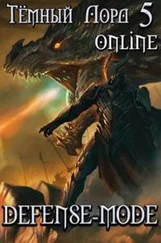She watched with satisfaction as the first of the Lightnings came in, in mid-afternoon, and settled into the spot prepared for it. The entrance had been adapted with a set of camouflaged sliding doors that looked, from outside the mountain, like a stony cornice overhung with snow.
Unfortunately, the snow that gathered above it, also part of the camouflage, had a tendency to fall in through the opening doors, shortly thereafter leaving the floor awash in meltwater, and the markings teams began complaining about what it was probably doing to their incompletely dried paint job.
When they started yelling about this for the second time, on the arrival of the second Lightning, Jonelle realized it was time to get out of there. She went down to her quarters—a very bare-bones arrangement so far, barely more than a camp bed with a desk off to one side, on which was mounted her terminal to the command-and-control network installation—and went rooting around in her closet for the necessary civvies for going to town.
This, of course, was no simple matter. It meant first checking the train schedule to make sure that the way would be clear for the little automated shuttle car. After going to all this trouble over the new base, there would be no point in being killed by the 4:10 InterCity from Göschenen to Basel. Once you’d checked, you then went down in the elevator, called the car with the control in the elevator, put on a big, loose coverall (which wrought havoc with your skirt, if you were wearing one) and a fluorescent reflective vest so that at first glance you looked like railway personnel. Then you waited on the chilly, windy platform—an amazing forty-mile-an-hour draft came through that tunnel at all times—until the car came along and stopped for you. Once on it, you activated the controls that started it trundling back up to the light at the end of the tunnel. There it veered off to one side, onto an auxiliary track before and to one side of the main Göschenen station platforms. The track ran through what was essentially a little shed open at both ends. You climbed out, hung up your railway gear neatly on a hook provided for the purpose, and then made your way down a flight of stairs inside the “shed,” through an underground passage and out through a plain locked door, which let you into the other underground corridors, which more normal passengers changing trains at Göschenen used to get from one track to another. After that, you walked around the end of the main-line platforms to the smaller one, which serviced the little “slanted” Göschenen-Andermatt train. You climbed aboard, showed the conductor your rail pass, and waited a few minutes until the little train hooted and started on its . winding, leaning way up through the Schöllenen Gorge.
At the little station at Andermatt, you would get off to find yourself surrounded by either mad skiers waiting for one of the local commuter trains to take them up to the ski-drag lines at the bottom of the Oberalp Pass, or else a crowd of sated tourists, some rather the worse for wine drunk at unusual altitude, just off the Glacier Express, breaking the seven-hour trip before continuing on to either St. Moritz or Zermatt. Jonelle found herself among the skiers this time, it being a little late in the day for the tourists.
She made her way to the turnstile through what, as far as she could tell, was an impassioned argument about ski wax among a batch of fluorescently clad downhill enthusiasts. Out she went into the station parking lot, then full (in the swiftly falling dusk) of the cars of parents meeting kids now returning from the senior school in the next town over, Hospental. Once past the cars, Jonelle turned right at the bottom of the parking lot, past the tourist board building, and walked a little down the main street until the gap in the wall where she could cut through the town’s park to the center of Andermatt village proper.
With the snow beginning to fall again through a dusk going peach-colored from sunset light coming from a rift in clouds to the west, and the lights coming on warm in stores and houses, the town was an inviting place. There was very little architecture in Andermatt that was modern-looking. Most houses and buildings were wooden, either new wood, beautifully golden, or old wood, sometimes a couple of hundred years old, aged to a brown so dark it was almost black. And the architecture was generally a lot alike—broad, flat, shallowly sloping Alpine roofs, sometimes with stones on top to hold the tiles on (though once, on one of the local restaurants near a ski slope, Jonelle discovered that what she thought were stones were actually potatoes destined for rosti, and put up there in the snow to cool faster after boiling). Those buildings that were stuccoed rather than wooden were usually decorated with sgraffito, the swirling, abstract designs cut through white plaster into a deeper, gray plaster layer. The whole place was almost offensively rustic, quiet, and pretty, and (inevitably for Switzerland) clean.
Jonelle heartily wished she had some time to spend here that was not going to be taken up with concerns about traitors, equipment shortages, and other, deeper troubles. But since there was no chance of that, at least in the foreseeable future, she enjoyed the few minutes she had to spare, crunching through the foot-deep snow in the park. The quiet was pleasant, after the echoing clangor of the Hall of the Mountain King. There was little sound anywhere except the soft rush of the occasional car going by on the main road, the subdued jingle of snow chains, and the distance-muted shouts of children pelting one another with snow-balls over by the west side of the park, near the residential part of town.
She came out into the middle of town by the small alley that led past the town hall and made her way down to the “UN” office. Her PR assistant, an earnest young squaddie named Callie Specht, was tidying away the contents of her desk into a locked filing cabinet. She stood up hurriedly at the sight of Jonelle and said, “Oh, C—Ms. Barrett, I mean—”
“Hi, Callie,” Jonelle said, and shrugged out of her jacket. “Busy day?” Specht nodded. “Anything interesting?”
“No, ma’am. The usual complaints about the interference of government—their government and all the others—and about people from the army stomping around, doing God knows what—”
“They mean us?”
“No,” Callie said, “I think they really do mean their army. This town may depend on it for a lot of its income, but they’re still ambivalent about it. And a lot more about cows… “
Jonelle chuckled, “Inevitable. Listen: you go on ahead. Leave me the keys—I’ll lock up here.”
Her squaddie went on willingly enough. Jonelle locked herself in and lost herself, for half an hour or so, in the business of finishing cleaning the place up for the night while her head buzzed with figures and conjectures.
Now that the number-one hangar is ready—and I’ve got my Lightnings out of harm’s way—what next? The mind shield, or the hyperwave decoder? Which first? If they can have the containment area ready by the end of the week, I’d say the mind shield.
She went over it and over it. There were arguments for both pieces of equipment, but none of them seemed so overwhelming that it would leave her with a clear answer. Jonelle suspected that this was either because there really was not much difference between the two at the moment, or because she was dead tired and in no condition to make a choice on which lives might depend. Probably the latter.
She looked around her, could see nothing else that needed doing, and got busy securing the office. As she was locking the front door, a crowd of cheerful men in cold weather gear were heading up the street toward her, most of them familiar faces that she had seen in the office over the past week. One of them was Ueli Trager, the president of the town. The men were laughing and joking, and one of them was waving a wad of cash in another one’s face.
Читать дальше











